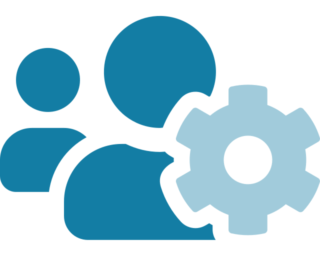I spent 22nd and 23rd of May at the GitHub Satellite conference in London. The aim of the event was to:
- provide a showcase for users of and service providers for GitHub;
- unveil some new GitHub features; and
- offer training workshops covering particular GitHub technology.
Given that I use GitHub and associated tools like Travis-CI, Waffle, CodeCov, etc. more than anything else on the internet and the OPF relies on the free services they provide for open source projects, I thought I’d go along and see what was happening.
Day one was spent at the at the PrintWorks venue near Canada Water watching presentations given by staff from GitHub and GitHub friendly organisations. There were two presentation streams for much of the day meaning it wasn’t possible to see everything. The opening keynote was given by Chris Wanstrath, the CEO and co-founder of GitHub. The highlights were:
- A GitHub App Store which was officially launched that day. In reality, this is just a store front for integrated services like Travis and Waffle. It’ll make new services easier to find but won’t revolutionise the way you use GitHub.
- The new GitHub API based upon GraphQL, designed to make querying the API easier and more efficient. This was much more interesting, I use the API myself as do many of the OPF build services. I can hopefully look forward to better, more efficient interaction between Jenkins and GitHub. The underlying query language is very interesting and something I’ll be looking more closely at some time this year.
Of the other presentations the most interesting were:
- How to avoid creating a GitHub junkyard: Lauri Apple of Zalando discusses ways of taming your GitHub offerings so that people can find your highest quality projects. This directly addresses a problem that I feel the OPF is facing. Unfortunately, the approach to solving it involves a lot of manual curation and documentation. The Foundation’s problem here is insufficient resources commit the necessary time to this at the moment.
- The power of the Open Source community: Kat Fuki and Mike McQuaid of GitHub talked about some of the elements that make Open Source projects successful. They also demonstrated some of the ways GitHub can help you establish and moderate Open Source communities. I’ll be looking more closely at my notes from this session as some of the resources looked applicable to OPF’s work.
- It’s not just for code! Git and GitHub as a platform for Open Education: Marc Scott from the Raspberry Pi Foundation showcased the work they’ve done to produce engaging open educational resources and build a community around them.
Day two was held at The White Rabbit in Shoreditch, London. This was dedicated to interactive workshops. In the morning I attended a session called “Electron: Start to Finish” where we were talked through creating and developing an Electron application. Electron is the cross-platform desktop application framework. It allows developers to use web technologies, JavaScript, HTML and CSS, to create desktop apps using Chromium and Node.js. The session was useful and easy to follow but I’m not convinced that I’ll be developing any Electron-based apps in the near future. Binding the Electron UI to the Java or Python backends I currently develop feels like a barrier as things stand.
I spent the afternoon in the “GitHub and the Internet of Things” workshop. This was enjoyable as we got to set up a continuous delivery pipeline from a GitHub repository to a specific Arduino device. While programming the weather sensor on the Arduino was fun, and the delivery workflow that deployed new versions was clever, I’ll admit that little of what I learned is directly applicable to my OPF work.
Overall it was an enjoyable and entertaining two days accompanied by glorious weather and a fun social event on Monday night. I’d attend the conference again but would perhaps be more selective regarding the workshops next year.


